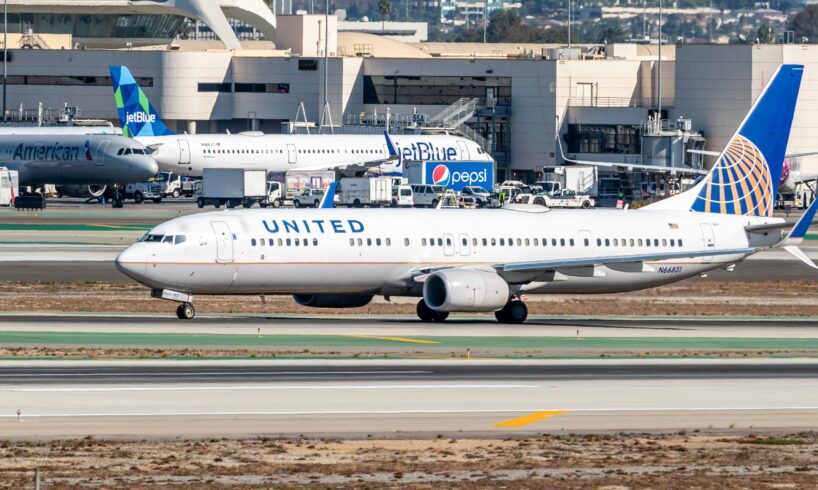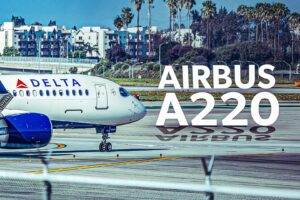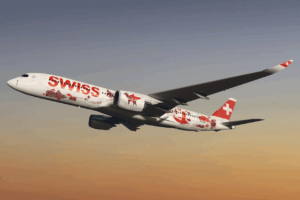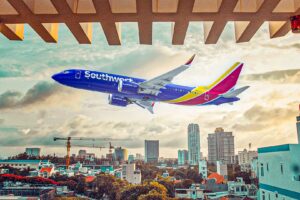
Spirit Airlines has continued to push against the ‘Blue Sky’ agreement between JetBlue and United Airlines, calling the two airlines’ response, in essence, an attempt at a distraction from the anti-competitive nature of the partnership.
The low-cost carrier, which first filed a complaint against the two airlines in June, received a response from JetBlue and United Airlines on July 3. The pair argued that Spirit Airlines’ attempts to push the Department of Transportation (DOT) to review ‘Blue Sky’ and make the relevant agreements public, which would allow relevant stakeholders to investigate and publicly comment on the partnership, were baseless.
Spirit Airlines Responding to JetBlue and United Airlines
Photo: Leonard Zhukovsky | Shutterstock
Spirit Airlines, which initially filed a request with the DOT for the Department to extend the review period of ‘Blue Sky’ by 60 days and make the relevant agreements public in late June, and received a response from JetBlue and United Airlines, has now continued its campaign against the partnership.
On July 9, the low-cost carrier, whose response was published on July 10, said that the two carriers’ joint response, in essence, said that “there is nothing to see here – and no one should have a chance to look.” According to Spirit Airlines, JetBlue and United Airlines focused on the smallest trees, namely the interline aspects of ‘Blue Sky,’ and ignored the most destructive parts of the partnership, “as well as the forest itself.”
“The Department has consistently invited outside input on precisely the kinds of airline joint ventures at issue here. Doing so is necessary to give the public an opportunity to both review the agreements and provide valuable public comment for the Department’s consideration.”
Blue Sky’s Competitive Concerns
Photo: Brian Logan Photography | Shutterstock
The carrier continued that the DOT’s obligation to consider whether such partnerships could be anti-competitive, even if it does not violate the Sherman Act, which the American Airlines and JetBlue joint venture, the Northeast Alliance (NEA), did violate, “is well within the Department’s statutory responsibility.”
Furthermore, Spirit Airlines argued, there is nothing materially in the NEA case that would enable the DOT to simply approve ‘Blue Sky’ without considering the public’s interest or the competitive harm that the partnership could result in.
According to the low-cost carrier, Blue Sky cannot be viewed in isolation. Rather, the DOT has to see it as a consistent trend of legacy airlines attempting to eliminate low-fare competition, which began on the day that the Airline Deregulation Act became law in 1978. As Spirit Airlines has said previously, legacy airlines control three key levers affecting competition in the US airline industry: loyalty programs and partner reward cards, a “stranglehold on scarce airport real estate, which largely includes gates” at fortress hubs or slot-constrained airports such as New York John F. Kennedy International Airport (JFK), and pricing power gained “through dominance of lucrative business travel on international routes,” which could be used to subsidize losses on domestic economy fares.
Related
JetBlue & United Defend ‘Blue Sky’ Partnership Amid Spirit’s Complaint
JetBlue and United Airlines labeled Spirit Airlines’ anti-competitive determination of their ‘Blue Sky’ partnership as speculation.
United Airlines Dominating The Blue Sky Partnership
Photo: United Airlines
Spirit Airlines continued that, whatever the terms of ‘Blue Sky’ might be, “United Airlines will dominate the relationship, which will result in higher fares and reduced competition” in markets where the two airlines are competing against each other. Thus, the low-cost carrier reiterated its request, once again asking the DOT to extend the review period of the partnership for 60 days, allow for public comments on the relevant agreements, and determine whether the DOT should investigate ‘Blue Sky’ as an unfair method of competition.
In their initial response to Spirit Airlines, JetBlue and United Airlines stated that the airline’s complaint and requests against ‘Blue Sky’ were “unfounded and provide no basis for the relief it seeks.” The pair stated that their partnership is “an arms-length” and pro-competition agreement that will benefit US consumers by providing more flight options, enhancing loyalty benefits, and facilitating United Airlines’ return to New York-JFK.
Year Founded
2000
CEO
Joanna Geraghty
JetBlue and United Airlines announced ‘Blue Sky’ in late May. The partnership includes reciprocal loyalty program benefits, namely earning and burning miles on MileagePlus and TrueBlue, an interline agreement, and the two swapping flight timings and slots at Newark Liberty International Airport (EWR) and New York-JFK. JetBlue would receive additional timings at the former, while United Airlines would receive slots at New York-JFK “for up to seven daily round-trip flights beginning in 2027.” At the time, the two airlines said that the partnership could begin as soon as this fall.






